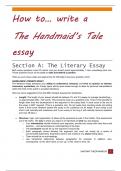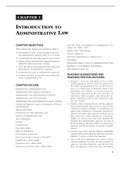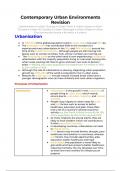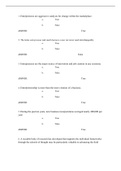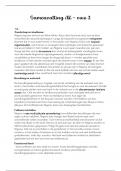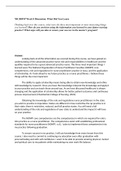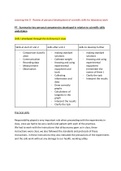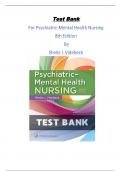Summary
Summary ALL THE PREPARATION THAT YOU NEED FOR WRITING IEB ENGLISH PAPER II IN 2024!
- Module
- Institution
- Book
This study guide contains everything that you will need to ace your IEB English Paper II exam. It contains notes, quotes, handy tips and 'How to' guides on each question that you will need to navigate to get the best possible mark!
[Show more]
